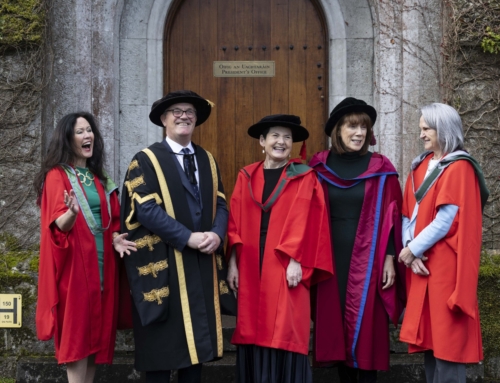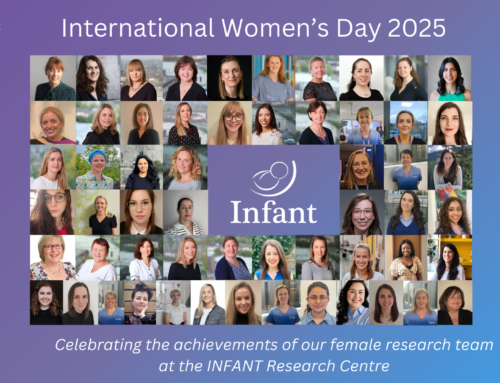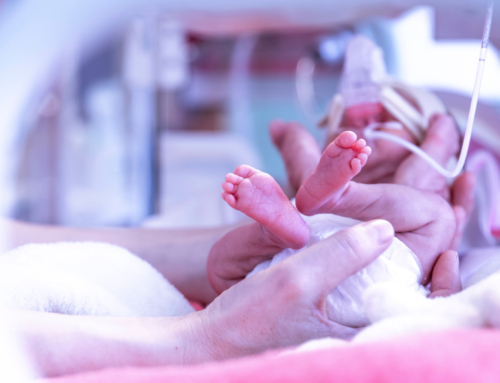Miscarriage affects one in four couples, while at least 1-3% will experience at least two or more first-trimester miscarriages in a row, known as recurrent miscarriage. The loss of a baby at any stage of pregnancy can have a devastating impact on a woman, her partner, and their family, even more so if this loss occurs several times.
Led by Professor Keelin O’Donoghue, researchers from the Pregnancy Loss Research Group at Cork University Maternity Hospital (CUMH) and University College Cork are examining services and supports in Ireland for women/couples who experience recurrent miscarriage as part of efforts to standardise and improve services across the country.
Working as part of the Health Research Board-funded RE:CURRENT (Recurrent miscarriage: Evaluating CURRENT services) Project, the research team would like to hear from women/couples about their care experiences. If you/your partner have had two or more consecutive first-trimester miscarriages and received care for these in Ireland during the last ten years and would like more information about how to take part, please visit https://tinyurl.com/recurrentcaresurvey.
Jennifer Ui Dhubhgain has three young children and lost six babies on her journey to completing her family. Through her work with the Miscarriage Association of Ireland, she supports women and men who have experienced pregnancy loss. Speaking about the RE:CURRENT Project Jennifer said, “Recurrent pregnancy loss takes not only a physical toll but also an emotional and mental toll on those who go through it, this can be compounded by services that can be lacking in certain areas. My hope, and belief now having been a part of and seen the process, is that the RE:CURRENT Project can have a huge positive impact on services nationally by improving the quality of care provided to those who experience recurrent miscarriage. This survey allows both women and men to share their experience. It gives them the opportunity to have their voices heard, to have their say, and to play a part in making a difference and bringing about the positive changes we all want to see within our maternity services.”
Con Lucey is a father of three children who has experienced nine miscarriages over the last seven years and is a Parent Advocate on the RE:CURRENT Project. Con is encouraging men who have been affected by recurrent miscarriage to share their experiences by completing the survey: “I am extremely happy to be involved in such a worthwhile project. I feel that this work will improve care & services and make a profound difference. Recurrent miscarriage is a horrible journey to travel, a sense of feeling lost on the way. I feel that any support or improvements for men to help themselves and their partners would be very beneficial.”
Findings from interviews conducted last year with over 60 stakeholders, including healthcare and allied health professionals, representatives from advocacy and support organisations, those involved in the administration, governance and management of maternity services, and women and men who have experienced recurrent miscarriage were used to develop the RE:CURRENT care experience survey.
According to Professor O’Donoghue, “working with stakeholders is a key feature of the RE:CURRENT Project. Parent advocates and support group representatives are involved in each aspect of the project, including the development of this survey. We are keen to ensure that through this survey we capture the experiences of as many women/partners as possible to ensure that their needs inform service improvements.”
The research team has also reviewed international guidelines for recurrent miscarriage and developed care quality indicators that will be used to evaluate services within the 19 maternity units/hospitals in Ireland over the coming weeks. Through the care experience survey and the service evaluation, the team is also investigating the costs and benefits of different models of care for recurrent miscarriage.
Further information for editors:
The RE:CURRENT Project Team comprises Professor Keelin O’Donoghue (PI), Dr Rebecca Dennehy, Dr Caragh Flannery and Marita Hennessy PhD (Postdoctoral Researchers).
Pregnancy Loss Research Group: Led by Professor Keelin O’Donoghue, Senior Lecturer and Consultant Obstetrician and Gynaecologist, the Pregnancy Loss Research Group was established in Cork University Maternity Hospital in 2012. The research group includes obstetricians, midwives, nurses, social workers, social scientists, epidemiologists, service users, perinatal pathologists, chaplains, educators, researchers, PhD, postgraduate and undergraduate students. The Group studies the lived experiences of men and women who have experienced all aspects of pregnancy loss, including miscarriage. It aims to advance the services offered to these parents by improving the understanding and awareness of the consequences of pregnancy loss amongst healthcare professionals and among the general population. Website: https://www.ucc.ie/en/obsgyn/plrg/
INFANT: The Irish Centre for Maternal and Child Health Research (INFANT) at University College Cork is Ireland’s first translational research centre focused entirely on pregnancy, birth and early childhood. Co-located at UCC, CUH and CUMH, INFANT has a local impact with a global reach. The centre is answering the international need for research and innovation to improve health outcomes for mothers and babies.
Resources for parents, families, health professionals, and anyone who needs information and support about pregnancy and/or infant loss:
Pregnancy and Infant Loss Website: www.pregnancyandinfantloss.ie
Cork Miscarriage Website: www.CorkMiscarriage.com. This is a valuable resource for parents who experience pregnancy loss or perinatal death. The website provides accurate and accessible information on a sensitive and often stigmatised subject, shares the latest research into the causes of baby loss, promotes emotional well-being, and offers details on how to access the appropriate support services.
Féileacáin (Stillbirth and Neonatal Death Association of Ireland – SANDAI) was formed by a group of bereaved parents to offer support to anyone affected by the death of a baby around the time of birth, and the organisation is now the national charity supporting families affected by perinatal loss. Website: https://feileacain.ie/
The Miscarriage Association of Ireland, a charitable body set up by and with the support of women and men who have experienced the loss of a baby through miscarriage. Website: http://www.miscarriage.ie/
A Little Lifetime Foundation’s aim is to provide information, services and support based on other bereaved parents’ and families’ experiences. Website: https://alittlelifetime.ie/
For interviews contact: Tara O’Leary: tara.oleary@ucc.ie. *Photographs can be made available by the team.







